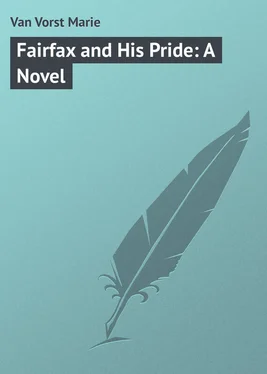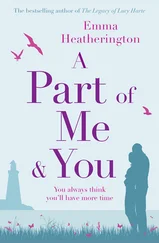Marie Van Vorst - Fairfax and His Pride - A Novel
Здесь есть возможность читать онлайн «Marie Van Vorst - Fairfax and His Pride - A Novel» — ознакомительный отрывок электронной книги совершенно бесплатно, а после прочтения отрывка купить полную версию. В некоторых случаях можно слушать аудио, скачать через торрент в формате fb2 и присутствует краткое содержание. Жанр: foreign_prose, на английском языке. Описание произведения, (предисловие) а так же отзывы посетителей доступны на портале библиотеки ЛибКат.
- Название:Fairfax and His Pride: A Novel
- Автор:
- Жанр:
- Год:неизвестен
- ISBN:нет данных
- Рейтинг книги:3 / 5. Голосов: 1
-
Избранное:Добавить в избранное
- Отзывы:
-
Ваша оценка:
- 60
- 1
- 2
- 3
- 4
- 5
Fairfax and His Pride: A Novel: краткое содержание, описание и аннотация
Предлагаем к чтению аннотацию, описание, краткое содержание или предисловие (зависит от того, что написал сам автор книги «Fairfax and His Pride: A Novel»). Если вы не нашли необходимую информацию о книге — напишите в комментариях, мы постараемся отыскать её.
Fairfax and His Pride: A Novel — читать онлайн ознакомительный отрывок
Ниже представлен текст книги, разбитый по страницам. Система сохранения места последней прочитанной страницы, позволяет с удобством читать онлайн бесплатно книгу «Fairfax and His Pride: A Novel», без необходимости каждый раз заново искать на чём Вы остановились. Поставьте закладку, и сможете в любой момент перейти на страницу, на которой закончили чтение.
Интервал:
Закладка:
Her mother exclaimed: "Why, of course, of course, there are the Whitcombs! My dear Antony," said his aunt, "if you could only stay with them you would be doing a real charity. They are dear little old maids and self-supporting women. They sell their work in my women's exchange. They have a nice little house."
Bella interrupted. "A dear little red-brick house, Cousin Antony, two stories, on the next block."
She tucked her book under her arm as though it were a little trunk she was tucking away to get ready to journey with him.
"The Whitcombs would be perfectly enchanted, Antony," urged his aunt, "they want a lodger badly. It's Number 700, Madison Avenue."
"It looks like the house that Jack built," murmured Gardiner, dreamily; "they have just wepainted it bwight wed with yellow doors…"
Fairfax thanked them and went, his heavy and his light step echoing on the hard stairway of his kinsmen's inhospitable house. Bella watched him from the head of the stairs, her book under her arm, and below, at the door, he shouldered his bag and went out into the whirling, whirling snow. It met him softly, like a caress, but it was very cold. Bella had said two blocks away to the left, and he started blindly.
This was his welcome from his own people.
His Southern home seemed a million miles away; but come what would, he would never return to it empty-handed as he had left it. He had been thrust from the door where he felt he had a right to enter. That threshold he would never darken again – never. A pile of unshovelled snow blocked his path. As he crossed the street to avoid it, he looked up at the big, fine house. From an upper window the shade was lifted, and in the square of yellow light stood the two children, the little boy's head just visible, and Bella, her dark hair blotting against the light, waved to him her friendly, cousinly little hand. He forged on through the snow to "The House that Jack built."
CHAPTER IV
He was the seventh son, and his mother was tired of child-bearing when Antony was born. The others, mediocre, fine fellows, left to their father's control, had turned out as well as children are likely to turn out when brought up by a man. One by one, during the interval of years before Antony came, one by one they had died, and when Mr. Fairfax himself passed away, he left his wife alone with Antony a baby in her arms. She then gave herself up to her grief and the contemplation of her beauty. Adored, spoiled, an indifferent house-keeper, Mrs. Fairfax was, nevertheless, what is known as a charming creature, and a sincere artist. She had her studio, her canvases, she wrote plays and songs, and nothing, with the exception perhaps of realities, for she knew nothing of them, nothing made less impression on her than did her only child, until one day she suddenly remembered Antony when it was too late.
He was like his mother, but she was unconscious of the fact. She only knew him as a rowdy boy, fond of sports, an alarmingly rough fighter, the chief in the neighbourhood scuffles, a vigorous, out-of-door boy, at the head of a yelling, wild little band that made her nerves quiver. Coloured servants and his Mammy soothed Antony's ills and washed his bruises. With a feeling of shame he thrust aside his artistic inclinations, lest his comrades should call him a milksop, but he drew copiously in secret, when he was kept in at school or housed with a cold. And from the distance at which she kept him, Antony worshipped his mother. He admired her hauteur, the proud cold loveliness. His sunny nature, incapable of morose or morbid brooding, felt no neglect. Late in spring they too had gone north to a water cure popular with Louisiana people, where a more vigorous growth of trees magnetized Antony, who climbed like a squirrel and tore his clothes to his heart's content. He had come in from a tramp and, scandalized by his rough and tumbled appearance as she caught a glimpse of him swinging along, Mrs. Fairfax summoned her little son. Rocking idly on the verandah she watched him obey her call, and there was so much buoyant life in his running step, such a boy's grace and brightness about him that he charmed her beauty-loving eyes.
"Go, wash your face and hands and bring your school books here. I do hope you have brought your books with you."
When he reappeared with the volumes of dog-eared school books, she fingered them gingerly, fell on his drawing portfolio and opened it.
"Who drew these for you, Tony?"
"Mother, no one. I did them. They are rotten."
Mrs. Fairfax exclaimed with excitement: "Why, they are quite extraordinary! You must study with some one."
Blushing, enraptured, Antony was tongue-tied, although a host of things rushed to his lips that now he might be permitted to speak to her he longed to tell everything that was on his heart.
Neither of them forgot that day. The wistaria was purple in the vines, and his mother, a shawl with trailing fringe over her shoulders, rocked indolent and charming in her chair. She had made her husband and her other sons her slaves, and she remembered now, with a sense of comfort, that she had another servitor.
"My shoe is unbuttoned" – she raised her small foot – "button it, Tony."
The boy fell on his knees, eager to offer his first service to the lovely woman, but his hands were awkward. He bungled and pinched the delicate skin. The mother cried out, leaned over and smartly boxed his ears.
"Stupid boy, go; send me Emmeline."
Poor Antony retired, and as Emmeline took his place he heard his mother murmur —
"Aren't the cherries ripe yet, Emmy? I'm dying to taste some cherries, they're so delicious in the North."
Emmeline had fastened the shoe and lagged away with southern negligence, leaving Antony's books as he had flung them on the porch, and though it was an effort to lean over, Mrs. Fairfax did so, picked up the drawing-book and studied it again.
"Talented little monkey," she mused, "he has my gift, my looks too, I think. How straight he walks! He has ' l'élégance d'un homme du monde .'"
She called herself Creole and prided herself on her French and her languor.
She sat musing thus, the book on her knees, when half an hour later they carried him in to her. He had fallen from a rotten branch on the highest cherry tree in the grounds.
He struck on his hip.
All night she sat by his side. The surgeons had told her that he would be a cripple for life if he ever walked again. Toward morning he regained his senses and saw her sitting there. Mrs. Fairfax remembered Antony that day. She remembered him that day and that night, and his cry of "Oh, mother, I was getting the cherries for you!"
Before they built him his big, awkward boot, when he walked again at all, Antony went about on crutches, debarred from boyish games. In order to forget his fellows and the school-yard and "the street" he modelled in the soft delicious clay, making hosts of creatures, figures, heads and arms and hands, and brought them in damp from the clay of the levee. His own small room was a studio, peopled by his young art. No sooner, however, was he strong again and his big shoe built up, than his boy-self was built up as well, and Antony, lame, limping Antony, was out again with his mates. He never again could run as they did, but he contrived to fence and spar and box, and strangely enough, he grew tall and strong. One day he came into his little room from a ball game, for he was the pitcher of the nine, and found his mother handling his clayey creatures.
"Tony, when did you do these?"
"Oh, they are nothing. Leave them alone, mother. I meant to fire them all out."
"But this is an excellent likeness of the General, Tony."
He threw down his baseball mask and gloves and began to gather up unceremoniously the little objects which had dried crisp and hard.
Читать дальшеИнтервал:
Закладка:
Похожие книги на «Fairfax and His Pride: A Novel»
Представляем Вашему вниманию похожие книги на «Fairfax and His Pride: A Novel» списком для выбора. Мы отобрали схожую по названию и смыслу литературу в надежде предоставить читателям больше вариантов отыскать новые, интересные, ещё непрочитанные произведения.
Обсуждение, отзывы о книге «Fairfax and His Pride: A Novel» и просто собственные мнения читателей. Оставьте ваши комментарии, напишите, что Вы думаете о произведении, его смысле или главных героях. Укажите что конкретно понравилось, а что нет, и почему Вы так считаете.











